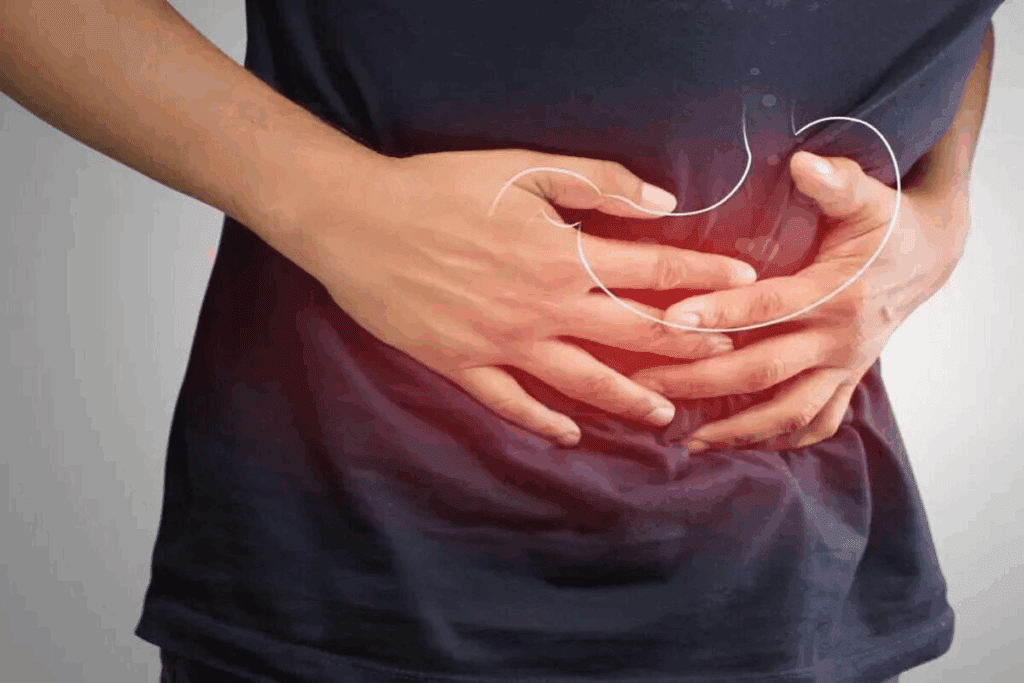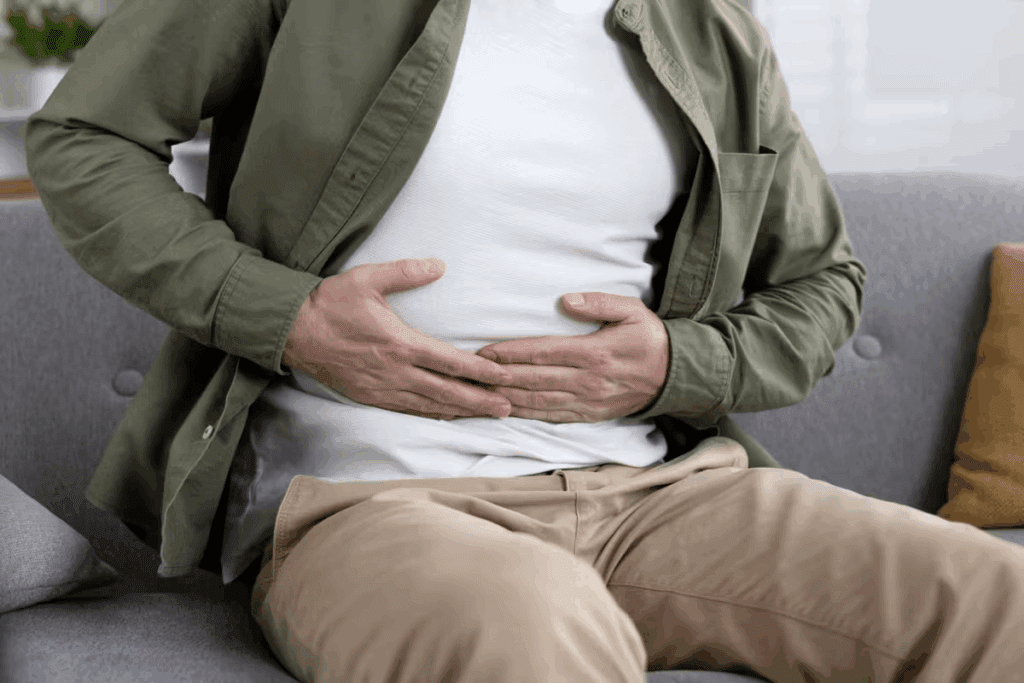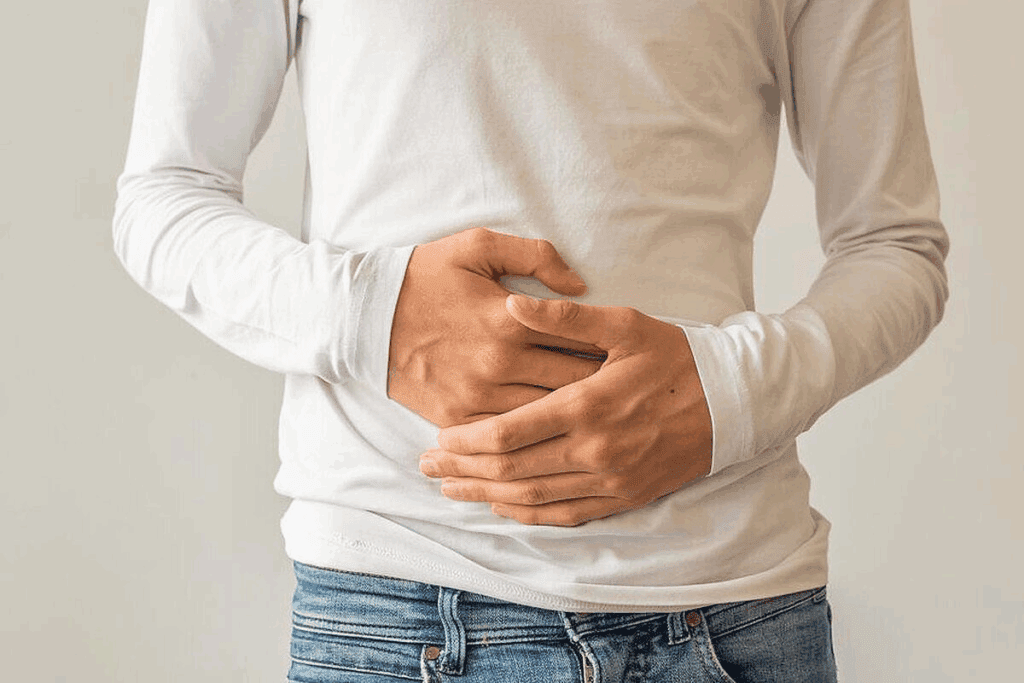Last Updated on November 26, 2025 by Bilal Hasdemir

Many people feel tiredness and fatigue after having gallbladder removal surgery. They often face various symptoms that can really impact their daily life.Understand fatigue after gallbladder removal symptoms, causes, and its effects on overall health.
Liv Hospital is here to help patients deal with these symptoms. Issues like digestive problems and changes in bile function can make you feel really exhausted.
It’s important to know why these symptoms happen. This article will look at the common signs of long-term fatigue. We’ll also talk about how to tackle them.

Gallbladder removal surgery, also known as cholecystectomy, is a common treatment for gallstones and diseases. It’s needed when the gallbladder gets inflamed or blocked. This can cause severe pain and serious health risks.
The gallbladder is a small organ under the liver. It helps digest fats by storing bile from the liver. When it’s removed, how the body digests food can change.
A cholecystectomy can be done in two ways: open or laparoscopic. The laparoscopic method is more common. It uses small incisions in the abdomen for instruments and a camera. This way, the surgeon can remove the gallbladder with less invasion.
After surgery, the body keeps making bile. But, it doesn’t have a gallbladder to store it. So, bile goes straight from the liver to the small intestine. This can make digesting fats harder and lead to digestive issues for some.
| Aspect | Before Cholecystectomy | After Cholecystectomy |
| Bile Storage | Gallbladder stores bile | Bile flows directly into the intestine |
| Digestion of Fats | Bile released upon eating fats | Continuous flow of bile into the intestine |
| Potential Issues | Occasional gallstone pain | Possible digestive discomfort or diarrhea |
Post-cholecystectomy syndrome is a set of symptoms after gallbladder surgery. These can include pain, diarrhea, and indigestion. The exact cause is not always clear, but it’s thought to be due to changes in bile flow and digestion.
It’s important to understand these changes for a smooth recovery. While many people don’t face big problems, knowing about bile and digestion changes can help manage any issues that come up.

Many people feel tired after having their gallbladder removed. It’s important to know why and for how long this tiredness lasts. This knowledge helps in managing recovery better.
Several reasons cause tiredness after gallbladder removal. Changes in bile function and digestion are key. The gallbladder helps with fat digestion. Without it, the body must find new ways to digest food, leading to fatigue.
The surgery also causes physical stress, adding to tiredness. If diet isn’t managed well after surgery, nutritional deficiencies can happen.
Feeling tired after surgery is normal. But, it’s important to know when it’s too much. Mild tiredness that gets better with rest is okay. But, if tiredness is severe or lasts a long time, it’s a worry.
Keep an eye on your energy levels. If you’re extremely tired, tell your doctor. They can check if your tiredness is normal or if you need more help.
How long it takes to feel better after gallbladder removal varies. Most people start to feel better in a few weeks to months after surgery.
| Recovery Stage | Expected Energy Levels |
| 1-2 weeks post-surgery | Low energy, significant rest required |
| 2-6 weeks post-surgery | Gradual improvement, some daily activities possible |
| 6-12 weeks post-surgery | Noticeable improvement, most daily activities manageable |
Following a balanced diet and staying hydrated helps. Also, listening to your healthcare provider’s advice is key to recovering well and reducing tiredness.
Feeling extremely tired after having your gallbladder removed can really impact your daily life. While some tiredness is normal after surgery, feeling very tired for a long time is a concern.
Usually, people start feeling better a few weeks after their gallbladder surgery. But, some people might feel prolonged fatigue that lasts for months or even longer. It’s important to find out why this fatigue keeps happening.
If you’re feeling so tired that it’s hard to do everyday things, you should talk to your doctor. They can figure out if there’s something else going on that needs to be looked at.
There are several reasons why you might feel tired for a long time after your gallbladder surgery. These include:
Knowing what might be causing your chronic fatigue is the first step to managing it.
Dealing with chronic fatigue often means finding and fixing the root cause. This might include:
By working with healthcare professionals, you can find ways to manage your fatigue and live a better life.
Removing the gallbladder can cause trouble sleeping, a key part of recovery. Many patients face sleep issues after surgery, and knowing why is key to managing them.
Many patients struggle to sleep after gallbladder surgery. This is due to digestive problems and hormonal changes. These issues can make it hard to fall or stay asleep.
Sleep is essential for healing after surgery, including cholecystectomy. It helps the body repair and grow stronger. Poor sleep can slow down recovery and cause more problems.
Good sleep is linked to faster recovery. Adequate rest aids in healing, fighting infections, and getting back to normal. So, it’s important to tackle sleep issues after gallbladder surgery.
Using sleep management strategies can help improve sleep after cholecystectomy. Keeping a regular sleep schedule and a comfy sleep space is key. Also, avoid caffeine and heavy meals before bed.
By following these tips, patients can better their sleep and recovery.
After having your gallbladder removed, you might experience night sweats and hot flashes. These symptoms are common during menopause. But, they can also happen to people who have had their gallbladder taken out. This shows how bile and hormones work together in our bodies.
Removing your gallbladder can mess with how your body controls temperature. Bile helps digest fats and absorb vitamins. Without a gallbladder, bile goes straight to your small intestine. This can change how your body breaks down fats and vitamins, including hormones.
Changes in Bile Flow can affect hormone levels. The constant flow of bile into your intestine might mess with hormone circulation. This could lead to ups and downs in hormone levels.
Bile helps get rid of extra estrogen in your body. The liver makes estrogen water-soluble with bile’s help. Without a gallbladder, bile flow and composition might change. This could affect estrogen levels.
Estrogen levels can change because of bile and hormone metabolism shifts. These changes might cause symptoms like night sweats and hot flashes.
| Hormone | Role | Impact of Gallbladder Removal |
| Estrogen | Regulates various bodily functions, including reproductive processes. | Potential fluctuations due to changes in bile flow and estrogen metabolism. |
| Progesterone | Involved in menstrual cycle regulation and maintenance of pregnancy. | Possible indirect effects due to changes in hormonal balance. |
Dealing with night sweats and hot flashes after gallbladder removal means tackling hormonal changes. Treatments include hormonal therapies, lifestyle changes, and diet adjustments.
Lifestyle Adjustments can help. Keep your sleep area cool, avoid spicy or caffeinated foods, and try relaxation techniques.
Changing your diet, like eating more omega-3s and fiber, can also help manage hormonal shifts and symptoms.
After gallbladder removal, digestive changes are common. It’s important to understand these changes to manage your appetite and nutrition. The gallbladder helps digest fats, and without it, digestion changes.
Without a gallbladder, the body must adjust to new bile processing. The gallbladder stores bile from the liver and releases it to digest fats. After surgery, bile goes straight to the small intestine, causing digestive changes like diarrhea or fatty stools.
These changes can also affect fat-soluble vitamins like A, D, E, and K. Knowing this helps manage your diet and avoid nutritional deficiencies.
Some people lose their appetite after gallbladder surgery. This can be due to digestion changes, discomfort, or other symptoms. It’s important to eat well to recover properly.
To regain your appetite, try eating smaller meals more often. Choose foods that are easy to digest. Avoiding fatty foods can also help with digestion and appetite.
Right nutritional strategies are key for a good recovery. Eat a balanced diet with fruits, vegetables, whole grains, and lean proteins.
Understanding digestive changes and using the right nutrition can help manage your appetite and health after gallbladder removal.
Gallbladder surgery can cause unexpected changes, like hair thinning and changes in how you look. These changes can worry people who have had the surgery.
Many patients have reported hair loss after gallbladder surgery. The exact reason is complex, but surgery and nutritional issues are thought to play big roles.
Nutritional deficiencies can happen because of how the body digests and absorbs nutrients differently. It’s important to get enough vitamins and minerals, like biotin and vitamin D, for hair health.
A diet without the right nutrients can make hair loss worse. Important nutrients for hair include:
Eating enough of these nutrients or taking supplements can help stop hair loss.
| Nutrient | Role in Hair Health | Food Sources |
| Protein | Building block of hair | Eggs, fish, beans |
| Iron | Carries oxygen to hair follicles | Red meat, spinach, fortified cereals |
| Zinc | Supports hair growth and repair | Oysters, beef, chicken |
How long it takes for hair to recover varies. Usually, fixing nutritional issues helps hair grow back. But, it might take months to see big changes.
Eating well and talking to a doctor about supplements can help your hair during recovery.
After gallbladder removal, patients may face various symptoms. These can affect their sexual health and hormonal balance. The surgery’s impact on sex is complex, involving hormonal shifts and possible discomfort during sex.
Gallbladder removal can change sex drive and libido due to hormonal shifts. Some patients see a drop in libido, while others notice little change. The link between bile function and hormone regulation is key here.
The liver makes bile, stored in the gallbladder. After surgery, bile goes straight to the intestine. This can affect fat digestion and vitamin absorption. It might also change hormone production, including sex hormones, affecting libido.
Some people may feel uncomfortable during sex after gallbladder surgery. This discomfort can come from changes in the abdomen and scar tissue.
Talking openly with healthcare providers about any discomfort is important. They can help manage symptoms and improve sexual health.
The thyroid gland affects metabolism, energy, and hormones, all important for sex. There’s evidence that gallbladder removal can change thyroid function. But the exact reasons are not clear.
If you notice lasting changes in sex drive or discomfort during sex after surgery, see your healthcare provider. They can check your health, find any issues, and suggest treatments.
Watching your symptoms and living a healthy lifestyle can also help your sexual health and recovery.
| Symptom | Potential Cause | Management Strategy |
| Decreased Libido | Hormonal Changes | Consult healthcare provider, consider hormone therapy |
| Discomfort During Intercourse | Abdominal Changes, Adhesions | Discuss with healthcare provider, physical therapy |
| Thyroid Function Changes | Potential Link to Bile Flow Changes | Thyroid Function Tests, Medication Adjustment |
After gallbladder surgery, many people feel tired, have trouble sleeping, and notice changes in their hormones and digestion. To get better, it’s important to tackle these issues head-on.
Eating right is key to feeling better and recovering faster. A diet that’s easy to digest can help with digestion problems. It’s also vital to manage hormonal changes, like those caused by estrogen, to reduce symptoms like night sweats.
For women, losing weight after gallbladder surgery is a big concern. Studies show that eating well and exercising can help manage weight and boost health. By focusing on nutrition, hormone balance, and lifestyle changes, people can avoid long-term health issues and enjoy a better life after surgery.
Knowing how estrogen affects the gallbladder and managing hormonal changes can help in the recovery. This way, individuals can achieve the best health possible.
Surgery to remove the gallbladder might change your sex drive. This is because of hormonal shifts, like how estrogen is processed. Some people might feel less interested in sex, while others won’t notice a difference.
There’s a link between removing the gallbladder and thyroid issues. This is because bile flow changes can mess with thyroid hormone metabolism. But, we need more research to understand this fully.
Fatigue after gallbladder surgery can come from many sources. These include digestion changes, nutrient gaps, and hormonal shifts. It’s key to talk to a doctor to find out why.
Fatigue times vary after gallbladder surgery. Some people feel tired for weeks, while others take months to regain energy.
Yes, night sweats and hot flashes can happen after gallbladder surgery. This is due to hormonal changes, like estrogen metabolism shifts. There are treatments to help manage these symptoms.
To handle digestive changes, eat a balanced diet and avoid fatty foods. You might need supplements. A doctor or dietitian can offer personalized advice.
Hair loss or thinning can occur after gallbladder surgery. This is often due to nutrient deficiencies or hormonal changes. Eating well and talking to a doctor can help prevent this.
Gallbladder surgery doesn’t directly cause vaginal bleeding or changes in menstrual cycles. But, hormonal shifts after surgery might affect these areas.
To sleep better after surgery, stick to a regular sleep schedule. Create a calming bedtime routine and avoid stimulating activities before bed. A doctor can also help with sleep issues.
Estrogen can increase the risk of gallstones and change bile composition. After gallbladder removal, estrogen metabolism changes might lead to hormonal symptoms.
Yes, sleeping problems can occur after gallbladder surgery. This is due to pain, discomfort, or hormonal changes. Good sleep habits and doctor advice can help.
To stay healthy after surgery, eat well, exercise regularly, manage stress, and see your doctor often. This helps avoid long-term issues and aids in recovery.
Khalil, H. M., et al. (2021). Biliary leakage following cholecystectomy: A prospective population study. Journal of Research in Medical and Dental Science, 9(5), 289-296. Retrieved from https://www.jrmds.in/articles/biliary-leakage-following-cholecystectomy-a-prospective-population-study-84919.html
Subscribe to our e-newsletter to stay informed about the latest innovations in the world of health and exclusive offers!